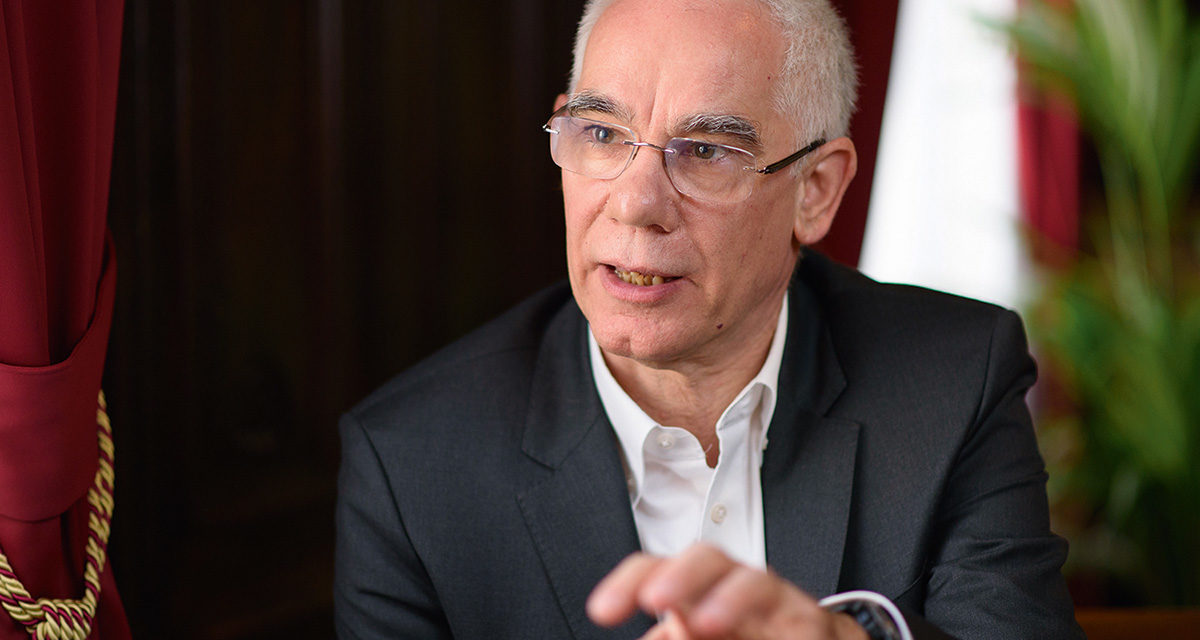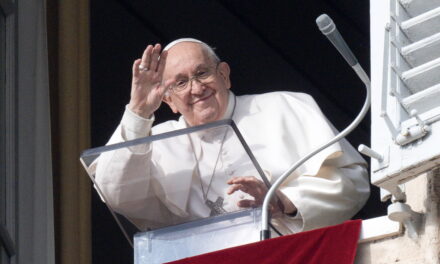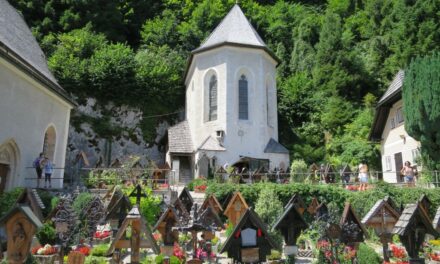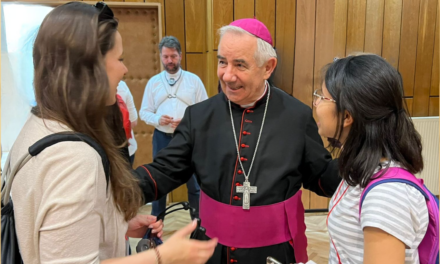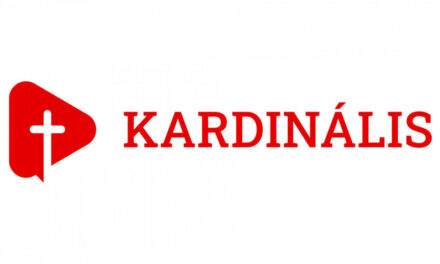By saying yes to life and being born, Jesus completes man and gives him a dignity that we cannot give ourselves. Reformed bishop Zoltán Balog, pastor president of the Synod of the Hungarian Reformed Church, spoke about this on the occasion of Christmas.
Zoltán Balog emphasized: Jesus is the only one who, according to our belief, was asked by the Father if he wanted to be born, if he wanted to live, renouncing his divine dignity and power. He could decide and said yes to human life, not theoretically, but by taking upon himself all the suffering and death of man.
The fulfillment of man's "divine image", his creation in God's image, is God's becoming a man, his "human image". With the birth of Jesus, this is how our human existence is fulfilled, this is the secret and miracle of Christmas.
The Reformed bishop reacted to the data of the 2022 census published in the autumn, indicating a significant decrease in the number of members of the historic churches, by saying that he expected a worse result based on the church's own records.
At the same time, Zoltán Balog accepted the result with reservations, according to him, the fact that 40 percent of the respondents did not answer the religious question could indicate not only a distancing from the churches, but also distrust of the interviewers or internet data services. As well as the tendency for people to increasingly consider their religious and ethnic affiliation as their personal matter, which does not belong to others. This must be respected.
He summarized the changes in the Reformed church community as: "the middle is getting stronger, the edges are fragmenting". The number of those who belong to the Reformed community for family reasons or on the basis of tradition, but without an intense connection, has decreased, while at the same time the number of those who consciously live their Reformed faith has increased. The church also has specific numbers with financial consequences for this:
in the past 13 years, the number of people donating one percent of their personal income tax to the Reformed Church has doubled, from 150,000 to more than 300,000.
At the same time, Zoltán Balog called the fact that the number of those who consider themselves irreligious decreased by more than two hundred and fifty thousand as an important data that sounds the alarm in the life of the churches. According to his interpretation, this indicates that the number of members of the churches has decreased in such a way that interest in faith, religion, and transcendental issues has increased, as in the whole of Europe, so also in Hungary. This encourages us to devote energy not only to "what we say" but also to "how we should say it" in order to address the people of today.
He called reformed schools and religious education in state schools a good opportunity for this, where the majority of young people who are not affiliated with the church go, who mercilessly ask questions that concern them or that trickle into church schools and religious classes through the media. This
"it prompts us on a daily basis to think about our answers and whether they should be said in the same way as 150 years ago".
In the debate about euthanasia that has unfolded in recent months, Zoltán Balog took the following position:
"we would like the legal regulations to remain pro-life also with regard to dying".
The state must not only regulate, but also ensure the conditions for a dignified death, where the affected families are unable to do so. The state and the church also have a role to play in this, because there are few hospices in Hungary, the place where during palliative care they focus not only on alleviating physical pain, but also on mental pain, which is why the presence of relatives, pastors and psychologists is ensured.
We cannot allow God to give it to us and therefore only he can take life from us or we can give it back to him. But it is our duty and our duty to say this in such a way that the suffering person is in front of us.
"That is why I considered it important to write a personal letter to Dániel Karsai, who initiated the legal possibility of euthanasia, in which, in addition to expressing my sympathy, I tried to shed light on the Christian position we profess"
he said.
Speaking the truth in itself is not enough. What follows from our Christian faith must be said with such love that it is not a judgment or a stigma.
The church's pastors, volunteers, doctors, and nurses turn to the dying with deep compassion, while others reinforce the image in society that the church is a stranger to life, mercilessly slandering the articles of faith and is not willing to let go of them. He added that conversations about the end of life usually do not take place in front of the media, but at the bedside of the dying, and the answers that arise from them go beyond simply stating that active euthanasia is a crime.
Zoltán Balog also touched on the fact that 2023 was the year of the pastoral vocation in the Reformed Church, and several important decisions were made within this context. He highlighted the previously unsolved issue of financial security for pastors, even during the period when they have children. He also called it important to develop a sustainable, inflation-tracking pension system within the Reformed Church. As a third result, he mentioned the establishment of a pastoral care network, which provides help to pastors struggling with burnout so that they can practice their vocation for a lifetime.
He indicated that after the two specific thematic years on religious education and pastoral vocation, 2024 will be the year of the "living Word" in the church, focusing on an "ideal", spiritual-spiritual concept.
During the year, I would like to "dynamize" joint Bible reading and Bible understanding. "We are convinced that the source of the church's life and renewal is primarily the understanding of the eternal message of the Holy Scriptures," added Zoltán Balog.
MTI
Featured image: Democrat

